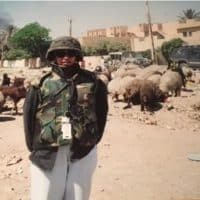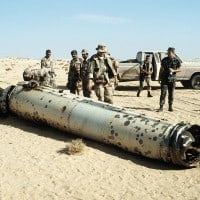Life in the Foreign Service extends far beyond the office, following its officers into all realms of existence abroad, at times for the worse. In 2003, after a military invasion, the United States had just begun its occupation of Iraq. A betrayal by Iraqi dissident Ahmed Chalabi thwarted U.S. efforts to set up an Iraqi… Read More "Finding Resilience in the Bombing of the Al Rasheed: Beth Payne in Iraq"
Introducing American Culture to Tokyoites
Renate Coleshill was born in Germany and went on to work for the U.S. Foreign Service in a number of places, including Poland and eventually Japan. While working in Japan’s capital city Tokyo from 1972 to 1976, she served as the secretary for the Deputy Public Affairs Officer, and in addition to her secretarial duties,… Read More "Introducing American Culture to Tokyoites"
For many Latin American states, expropriation has been a hammer in the toolbox of land or labor reform. For the United States, expropriation has been a thorn in the side of its companies’ profitable operations in the region—and, therefore, a threat to its interests. This conflict has played out many times throughout the region. In… Read More "An Expropriation Saga in Peru"
E Pluribus Unum. The average American will unwittingly encounter these very words on a daily basis and hardly give them a second thought. But this is not some meaningless Latin phrase that we simply plaster all over our currency for no reason. In fact, it provides an exemplary representation of the American democratic ideal: an… Read More "Do You Hear the People Sing?—Democratic Promotion in Haiti, Mozambique, and Iraq"
September 11, 2001 marked one of the worst ever terror attacks on American soil. Two hijacked planes crashed into and destroyed the World Trade Center’s Twin Towers, one crashed into the Pentagon, and one crashed in rural Pennsylvania. Nearly 3,000 people were killed, 8,900 were injured, and thousands more were left traumatized after experiencing the… Read More "9/11 Terror Attacks: A Consular Officer’s Perspective on Visas and Government Intelligence"
They were doctors, professors, and, in some cases, even peasants. The one thing they all had in common, however, was the desire to flee communist Romania for America and being “just miserable” because of it. Thanks to the efforts of two people at the U.S. Embassy in Bucharest, “The Miserables” found a voice in the… Read More "From Les Misérables to Good Americans: One Ambassador’s Fight to Secure Refugee Status for Romanian Dissidents"
For women in the 1990s, Kenya was a difficult place to live. For those who came from wealthier families and could afford education, they sometimes had the resources to do great things, from simply living independently to even winning the Nobel Peace Prize as Wangari Mathai did in 2004. Unfortunately, however, poverty, lack of resources,… Read More "Effects of Poverty on Women’s Rights in 1990s Kenya"
Following the 1990–1991 Gulf War, the United Nations wanted to prevent any further aggression, and feared that Iraq had developed nuclear weapons of mass destruction. The rest of the world could only imagine the level of mass destruction and carnage that would result if Iraq decided to use such weapons. As a result, the United… Read More "Iraq’s Weapons of Mass Destruction: Establishment of the United Nations Special Commission"
At the end of World War II, Argentina was entrenched in debt and on the verge of defaulting to its creditors in Europe. However, in voicing its concerns to France, Argentina was able to secure a three-day meeting in Paris that would allow its debt to be restructured along a more reasonable timeline; this was… Read More "Fiscal Relief in a Tumultuous Time—The Paris Club in the Nineties"
To directly defy orders from one’s superiors undoubtedly takes nerve and, above all, conviction and belief in doing the right thing. In an organization like the Foreign Service, where each individual takes part in representing an entire country, such a dynamic is only amplified. The bureaucracy of the State Department creates a concrete hierarchy. Yet,… Read More "An Unpopular Opinion: Tex Harris and the Yacyretá Dam Project in Argentina"








